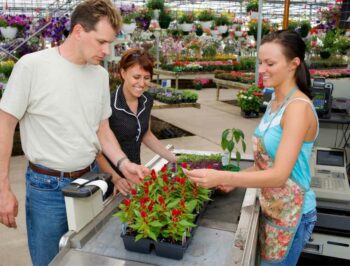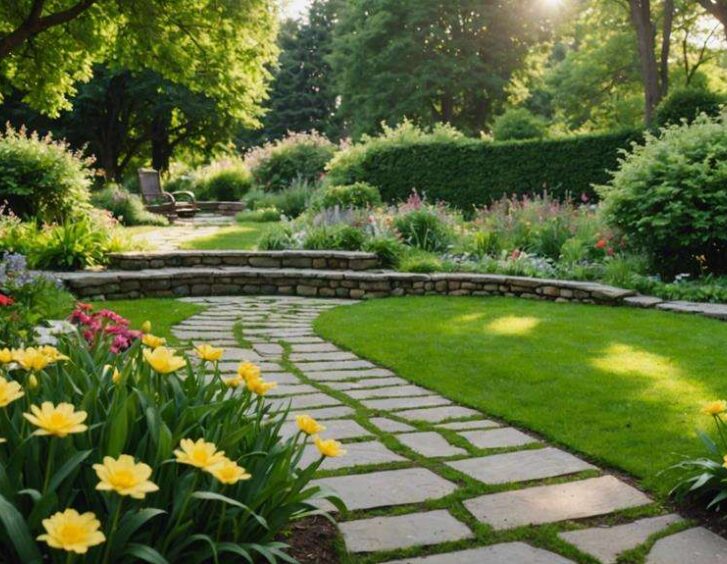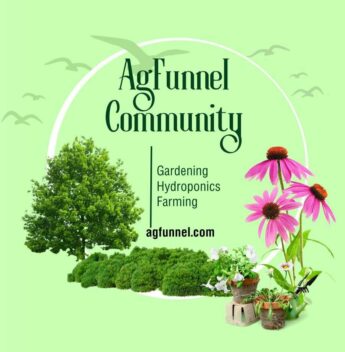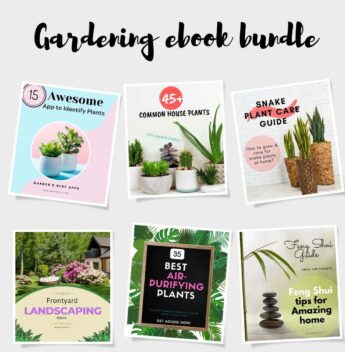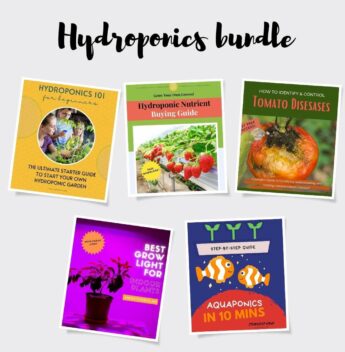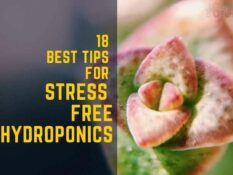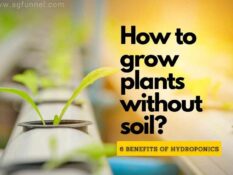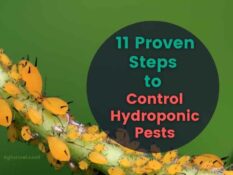You can create an eco-friendly outdoor space that benefits both you and the environment by adopting sustainable gardening practices. Start by conserving water with rain barrels, mulch, and efficient fixtures. Choose native plants that require less watering and support local ecosystems. Consider composting to reduce food waste and create nutrient-rich soil. Repurpose everyday items and use organic fertilizers to promote soil health. By implementing these sustainable tips, you'll be on your way to a greener, more eco-friendly garden. As you explore these strategies further, you'll discover more ways to minimize your environmental impact and cultivate a thriving outdoor space.
Key Takeaways
• Collect rainwater and gray water to reduce potable water usage and irrigate your garden sustainably.
• Plant native species that require less watering and support local ecosystems and wildlife.
• Compost food waste to create nutrient-rich soil, reduce landfill waste, and promote sustainable gardening practices.
• Repurpose everyday items, invest in reusable gardening tools, and compost organic waste to minimize waste and save resources.
• Choose organic fertilizers that promote long-term soil health, release nutrients slowly, and avoid contaminating water sources.
Water Conservation Strategies
By adopting water conservation strategies, you can greatly reduce your water consumption and lower your environmental footprint, while also saving on your water bill.
One effective way to conserve water is by collecting rainwater with barrels or systems, which can be used for irrigation and other non-potable purposes.
You can also redirect gray water from showers and washing machines for irrigation.
Additionally, using mulch in your garden can help conserve water, suppress weeds, and prevent erosion.
Native Plants for Sustainability
You can transform your outdoor space into a thriving ecosystem by growing native species. These plants require less watering, support the local ecosystem, and attract pollinators.
By choosing native plants, you'll create a sustainable and low-maintenance garden that benefits the environment. These plants have adapted to local conditions, so they need less care and support.
You'll conserve water, reduce the need for fertilizers and pesticides, and provide a habitat for local wildlife. Plus, native plants will attract pollinators like bees and butterflies, which are essential for our food supply.
Composting for a Greener Garden
Composting kitchen and garden waste reduces the amount of food waste sent to landfills and is an eco-friendly way to create nutrient-rich soil for your garden. By composting, you'll divert organic waste from landfills, where it produces methane, a potent greenhouse gas.
To get started, add a mix of 'green' materials like fruit and veggie scraps, grass clippings, and fresh leaves, along with 'brown' materials like dried leaves, twigs, and shredded newspaper. Balance the mix, keep it moist, and turn it regularly. In a few months, you'll have a nutrient-rich compost to fertilize your plants.
Consider using a compost bin or Bokashi kitchen composting system for easy management. With composting, you'll create a closed-loop system, turning waste into a valuable resource for your garden.
Reuse and Recycle in Gardening
Transform your gardening routine by repurposing everyday items, reducing waste, and cultivating a more sustainable approach to gardening.
You can repurpose items like glass jars and plastic bags for seed storage. Compost paper, coffee grounds, and compostable filters to reduce waste.
Invest in reusable seed starting trays made from recycled materials. Get creative and think outside the box – or in this case, the garden bed!
By reusing and recycling, you'll not only reduce waste but also save money and resources. Plus, you'll be doing your part for the environment.
Organic Fertilizers for Soil Health
By reducing waste and conserving resources through reuse and recycling, you're already taking a significant step towards a more sustainable gardening approach, and now it's time to focus on nourishing your soil with organic fertilizers that promote long-term soil health.
Choosing organic fertilizers over synthetic ones is a safer, eco-friendly option for your garden. These natural substances, such as manure and compost, release nutrients slowly, improving soil health in the long run. Unlike synthetic fertilizers, organic ones don't harm the environment or contaminate water sources.
Saving Seeds for Future Harvests
You can save seeds from your favorite vegetables and flowers, not only to reduce your gardening expenses but also to preserve the unique characteristics of your harvests.
By saving seeds, you'll be able to replant and enjoy your favorite varieties year after year. Start by choosing heirloom or open-pollinated seeds, which are more suitable for saving.
Allow the seeds to mature and dry completely before collecting them. Store the seeds in a dry, airtight container, like a glass jar, to keep them fresh for future use.
Label the containers with the seed type and date to keep track of your collection. With a little planning and care, you'll be able to enjoy your favorite harvests for years to come while reducing your environmental impact.
Lawn Alternatives for Eco-Friendliness
Consider replacing traditional non-native grass lawns with native ground covers. These alternatives require less water, fertilizer, and maintenance, reducing your environmental footprint and creating a beautiful, low-maintenance landscape.
Native ground covers are adapted to your local climate, thriving without needing frequent watering or fertilizing. They also attract local pollinators and support biodiversity. Popular options include creeping thyme, sedum, and vinca minor.
When selecting a ground cover, choose one suitable for your climate and soil type. Remember to remove any existing lawn and prepare the soil before planting your new ground cover.
With a little planning, you can create a stunning, eco-friendly lawn alternative that benefits both you and the environment.
Safe and Natural Pest Control
Chemical pesticides may seem like a quick fix for pest problems, but they pose a significant threat to the environment, human health, and food safety, making it essential to opt for natural insect control methods instead.
You can introduce beneficial predatory insects to your garden, which will help control pest populations naturally. Ladybugs, lacewings, and praying mantis are all great options.
You can also use neem oil, diatomaceous earth, and garlic sprays to repel pests. Additionally, maintain a healthy garden by providing good air circulation, watering plants properly, and removing weeds, which can attract pests.
Rainwater Harvesting for Irrigation
Rainwater barrels or systems can be installed to collect free water from your roof, reducing your reliance on city water for irrigation. You'll not only save money on your water bill but also reduce your environmental footprint. By collecting and storing rainwater, you'll have a sustainable source of water for your plants.
Make sure to redirect the collected water to your irrigation system, and you'll be watering your garden with free, eco-friendly water. This simple step can make a significant impact on the environment. By harvesting rainwater, you're reducing the amount of stormwater runoff that can pollute local waterways.
Reducing Waste in the Garden
By adopting a few simple strategies in your garden, you can significantly reduce waste and create a more sustainable outdoor space. Start by composting kitchen and garden waste to decrease the amount of trash sent to landfills.
You can also repurpose items like glass jars and plastic bags for seed storage, and compost paper, coffee grounds, and compostable filters. Consider using reusable seed starting trays made from recycled materials.
Additionally, choose products with minimal packaging or those that use biodegradable materials. By implementing these practices, you'll reduce waste, conserve resources, and create a more eco-friendly garden that benefits both you and the environment.
Frequently Asked Questions
How Often Should I Water My Native Plants During Extreme Drought?
When dealing with extreme drought, you'll want to water your native plants carefully. Since native plants are adapted to local conditions, they're more resilient to drought. However, they still need some watering.
Water them deeply once or twice a week, depending on soil type and temperature. Avoid frequent shallow watering, as this can encourage weak root growth. Instead, provide enough water to reach the roots, and then let the soil dry slightly between waterings.
Can I Compost Pet Waste and Diapers in My Garden?
You're wondering if you can compost pet waste and diapers in your garden. While it may seem like a good idea, it's generally not recommended. Pet waste and diapers can contain harmful pathogens like E. coli and salmonella, which can contaminate your compost and even your soil.
Instead, consider composting food scraps, leaves, and yard trimmings to create a nutrient-rich soil amendment for your garden.
What Are Some Alternative Materials for Making Garden Paths?
You're looking for alternative materials for making garden paths. Consider using recycled materials like broken pottery, crushed brick, or repurposed gravel. These options are eco-friendly and can add a unique touch to your garden.
You can also use natural materials like wood chips, pine straw, or even seashells to create a beautiful and sustainable pathway. Get creative and think outside the box to find the perfect material for your garden's unique style!
Will Using Rainwater Affect the Ph Balance of My Soil?
When you use rainwater for irrigation, it's natural to wonder about the impact on your soil's pH balance. Rest assured, rainwater is neutral, with a pH close to 7.0. It won't greatly alter your soil's pH levels.
However, if your soil is prone to acidity or alkalinity, you may still need to monitor and adjust the pH accordingly. Just keep in mind that rainwater can help dilute any existing pH imbalances, making it a great choice for your garden!
Do Beneficial Insects Help Control Pest Populations in Indoor Gardens?
You're wondering if beneficial insects can help control pest populations in indoor gardens. The answer is yes! Beneficial insects, like ladybugs and lacewings, prey on pests that can harm your indoor plants.
They're a natural, chemical-free way to control pests. Introduce these helpful insects into your indoor garden to create a balanced ecosystem. This approach is safer for you, your plants, and the environment.

